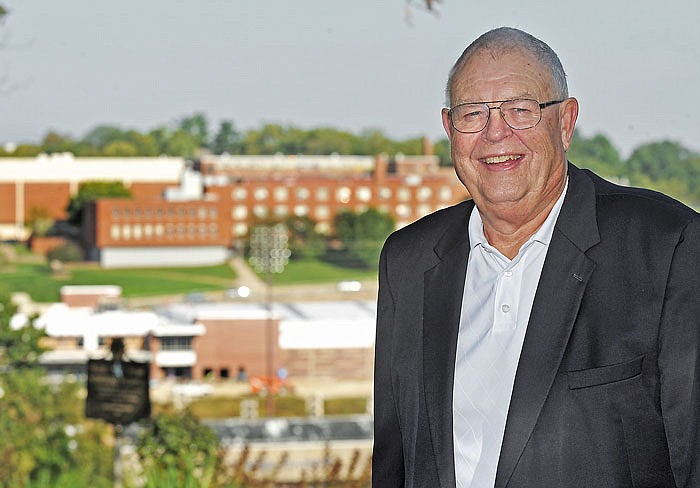There's a joke that if you've been around long enough you eventually become a pioneer, and that's the case for former superintendent Chris Straub.
He's been in education since 1966 as a teacher, coach, assistant principal, superintendent, an assistant executive director for the Missouri Association of School Administrators and a lobbyist for the Missouri School Boards Association. Up until recently, he was teaching workshops to administrators about setting tax rates and preparing district budgets. He even offered suggestions during the creation of the 2005 foundation formula - the equation that determines how much funding districts receive.
Straub, who was superintendent for Jefferson City Schools from 1989-97, said he was surprised when Missouri Commissioner of Education Margie Vandeven called to tell him he is among this year's recipients of the Pioneer in Education Award. The award has been given each year since 1974 and recognizes distinguished careers and contributions to public education at the state or local level, according to the Department of Elementary and Secondary Education award description.
"I've been around long enough that I've seen the Pioneers be inducted," Straub said. "Typically, Pioneers in Education is a recognition of people who've had a sizeable influence on education."
His sizeable contribution is spread out over the many places he's served.
"I think that while I was superintendent there were problems that needed to be solved every place I was," Straub said.
He was a superintendent at Union R-11 School District and Hannibal School District before starting at Jefferson City.
The key issues he dealt with at JCPS mirror the struggles of the district's current situation - overcrowding, a need for better communication with staff and improving community relations.
Several of the elementary schools were short of classrooms to accommodate the student enrollment and the secondary grade levels were spread out over three buildings - one for seventh grade, one for eighth and another for ninth through 12th. His tenure saw the construction of the two middle schools occurred and the ninth-graders moved to Simonsen Ninth Grade Center.
He was told early on about the staff relations problems.
"There wasn't a lot of good communication between the central office and the buildings," he said. "We decided to have some sort of forum where you could hear personally what problems staff members were having and we needed an opportunity to let those staff folks know what was going on districtwide."
A faculty council was created with elected members from each school who met once a month, and it worked really well, Straub said.
As far as the community went, Straub said the district needed to find avenues for more public engagement and give the community opportunities to help solve district problems. He formed a strong friendship with longtime Helias High School teacher and administrator Jim Rackers. The partnerships with the parochial schools were crucial and the philosophy between them was that the quality of education shouldn't be dependent on where students go to school. They worked together to ensure all student received an excellent education.
The partnership helped expand JCPS's summer school with parochial students attending and 40 percent of the summer school staff were hired from those schools, he said.
Straub spent the majority of his career in education as an administrator, but said teaching has been the most rewarding part.
"Even as a school administrator, you have an opportunity to teach," Straub said. "Not lecturing, but describing problems to people - some who are involved in education and some people in the community - about what your challenges are and how they can help."
When he was 5 or 6 years old, his grandmother said he'd either become a teacher or preacher because he liked to talk so much.
His family's long-range plan was for Straub to follow in the family business and become a physician. A small hospital in Colorado had been in his family for two generations and they expected he'd return to work there.
Instead, his love for chemistry morphed into a love for teaching during college and he spent 50 years in education.
Straub is still active within the district, including being a member on the district's Long Range Planning Committee.

